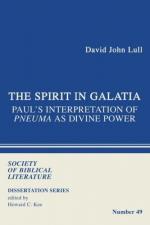|
This section contains 595 words (approx. 2 pages at 300 words per page) |

|
Ancient Greek thought early posited a connection between breath and life. The notion that wind or breath—pneuma—accounted for the functions of living things persisted in philosophical and medical accounts of organisms, sometimes alongside the notion of an immaterial soul or psychē. The idea that a distinct kind of pneuma played a role in the functioning of organisms seems to have developed in early medical theory. Some texts refer to pneuma as a kind of nutriment. The idea that there is a specifically "psychic" pneuma is found in the doctor Diocles of Carystus (fourth century BCE), who had connections to Aristotle's school.
In Aristotle's biology an innate pneuma is mentioned in connection with a number of functions of the organism and is even compared to the ether, the fifth element from which the heavenly bodies are composed. In the case of sexual generation pneuma is used to...
|
This section contains 595 words (approx. 2 pages at 300 words per page) |

|


